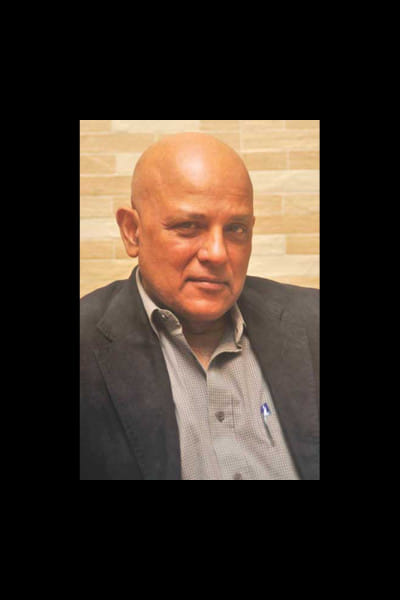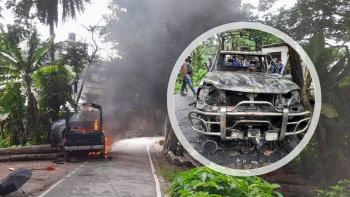Research Matters

Established in 1957 in the then Pakistan, the Bangladesh Institute of Development Studies (BIDS) is an autonomous, public organisation which conducts policy oriented research on development issues facing Bangladesh and other developing countries. In an exclusive interview with The Daily Star, Dr. Khan Ahmed Sayeed Murshid, the Director General of BIDS talks to Amitava Kar about a range of issues from the importance of research to what to expect from the national budget.
Please tell us why research is necessary. What are the prerequisites to quality research?
If you want to create knowledge, how else are we going to do it? Most of the time we are using borrowed knowledge. There is nothing wrong with that. The Japanese have done it. They took knowledge from the west and adapted it for local use. But in order to do research or adapt outside knowledge we have to develop human capacity. Otherwise, we will be relegated to the bottom rungs of the economic ladder. Just because we are poor, it does not mean that we cannot build a few high-tech laboratories and excellent research institutes. Despite being a poor country, India is creating small centres of very high level excellence. They are sending spaceships to outer space. We have to invest more, much more, on research. The benefits are huge in the long run even if they may not be tangible. It is like asking: What is the use of sending children to school?
To what extent has the research of BIDS influenced policymaking?
Eighty to ninety percent of the active economists in our country who engage in various debates on important development issues either work at BIDS or have worked for BIDS in the past. So, in a way, BIDS is the Mother of Research in Bangladesh (in development studies) as it has produced generations of economists and social scientists who have made their mark both inside the country and outside.
At another level, we have been able to reach out to policy makers, civil society and the private sector as well as to the broader development community worldwide through seminars, publications and the media. It would be facetious of me to claim that there is a direct, easy link between research and policy—there is not—since the link can be quite complex, and treacherous, even! We can, however, say that policy makers do listen to us with interest and sometimes we are able to affect policy. We should realise that the political economy of policy making extends well beyond the realm of research.
What are your expectations from the upcoming budget? Does the BIDS have any recommendations?
We expect the budget to provide the right signals to the economy. Our needs are vast, in just about every sector. My own inclination is to strategically focus on the basic cross-sectoral issues, namely human development and skills, energy and infrastructure, and improving the quality of expenditures. A bigger budget makes very good sense but only if we can ensure that the money is well spent.
We hear that the economy is growing at a rate unmatched by many other countries...
Actually, in our region, most countries have out-performed us. If you look at Vietnam and Cambodia, they have tripled their per capita income since the 1990s while we have only managed to double it. A growth rate of 6 or 6.5 percent is not bad. But we want to achieve 8 percent. That kind of requires a paradigm shift!
We have a big bulge in the population consisting of young people who are of working age. This is both an opportunity and a threat. Their contribution to the economy is huge—but their expectations are also rising quickly. Wages have gone up. We are saying that the urban-rural wages are tending to equalise. Then why are so many people trying to leave this country in such numbers, taking such risks?
We need to be careful about over-stating our 'development narrative'—we use such glowing terms to describe our performance, which hasn't been bad—it's just that we still have a long journey ahead, and there is no room for complacency.
What are the main challenges to reducing inequality?
The conventional wisdom is that we have to expand safety nets. Safety nets are programmes that the government or the NGOs undertake in order to lift the poor out of poverty or provide them with some resources. We need money to finance these programmes. So it would help if more people paid taxes.
A recurrent theme with safety nets has been weaknesses in targeting, and a proliferation of numerous, small and even tiny programmes—making it a management nightmare. This also does not bode well for efficiency and effectiveness.
Safety nets however, will not result in equity – for this our growth has to be broad-based and "inclusive", meaning that everyone should benefit from it.
Do ministries have research wings? What about the universities?
I am not sure. I think important ministries should have on board high quality expertise to advise them on technical issues. Otherwise, various donors and so-called development partners will come and give you all sorts of advice and you really wouldn't know how to evaluate it. You should have that in-house capacity to be able to assess the quality of advice you are receiving for "free".
Our universities—whether public or private—do not do any research. Let me not say any more.

 For all latest news, follow The Daily Star's Google News channel.
For all latest news, follow The Daily Star's Google News channel. 



Comments